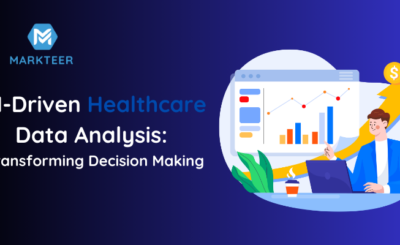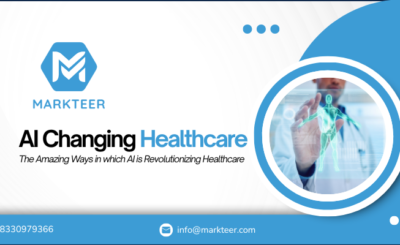Hospitals worldwide grapple with mounting administrative tasks, rising operational costs, and workforce shortages. AI agents are emerging as indispensable tools for streamlining workflows and enhancing administrative efficiency in this complex environment. By automating routine processes such as billing, scheduling, and data entry, AI frees healthcare professionals to focus more on patient care and less on paperwork.
The Growing Demand for AI Agents in Healthcare
The administrative complexity of healthcare, including managing patient records, coordinating staff schedules, ensuring regulatory compliance, and optimizing supply chains, has become a key driver behind AI adoption. The sector’s increasing burden from rising patient loads and shrinking resources has created an urgent demand for intelligent automation.
A McKinsey report shows nearly 30% of healthcare professionals spend time on administrative tasks. Many of these tasks, such as documentation, billing, and data management, are ripe for automation through AI. Furthermore, Accenture estimates that AI could reduce annual healthcare administrative costs in the United States alone to $150 billion by 2026.
Cost Savings and Operational Efficiency
Hospitals that embrace AI for administrative efficiency are already seeing tangible cost savings. The American Hospital Association reports that adopting AI technologies could help U.S. hospitals lower operational expenses by 8-10%, translating to as much as $2.8 billion per year for an average large hospital.
Billing automation is one of the key areas driving these savings. According to Health Affairs, AI systems used in billing and claims processing have led to a 20% reduction in claim denials. They can also cut insurance verification times by up to 70%. Meanwhile, a Deloitte study found that AI billing tools reduce errors by 85%, improving cash flow and revenue cycle management.
Scheduling and Staff Optimization
AI agents also streamline staff scheduling and resource allocation, which are crucial for reducing burnout and ensuring high-quality care. Intelligent scheduling tools have helped hospitals like Kaiser Permanente reduce appointment no-shows by 30% by analyzing historical data to create more reliable schedules.
According to a 2022 report by the Healthcare Financial Management Association (HFMA), AI-driven staff scheduling systems have reduced healthcare worker burnout by 20%, mainly by minimizing the risk of over- or understaffing. Predictive healthcare solutions anticipate patient volumes and allocate resources accordingly, ensuring staff are neither underutilized nor overwhelmed.
AI in Supply Chain and Inventory Management
Hospital supply chains are another area that is undergoing significant transformation due to the integration of AI. A Gartner survey found that hospitals utilizing AI for inventory management achieved a 25% reduction in stockouts and a 20% decrease in inventory waste.
AI systems track usage trends, predict future needs, and automate reordering, improving overall efficiency. According to McKinsey, AI applications in hospital supply chains could reduce costs by 15%, which would contribute to higher margins without compromising care quality.
Enhancing the Patient Experience
Beyond internal efficiencies, AI improves patient engagement and satisfaction. AI-powered scheduling systems offer real-time appointment booking, reminders, and rescheduling options, which enhance communication and reduce wait times.
In a study published in the Journal of Medical Internet Research, 82% of patients who used AI-driven scheduling platforms reported improved communication and shorter waiting times compared to traditional methods. Additionally, a Deloitte report noted that 75% of patients prefer receiving appointment scheduling and medication reminders from AI systems over human staff, citing increased responsiveness and convenience.
Key Administrative Areas Where AI Agents Excel
1. Patient Scheduling & Appointment Management
AI agents improve appointment logistics by analyzing a patient’s history, urgency, physician availability, and behavioral patterns.
- Reduced patient wait times: A study by Accenture shows that AI-based systems can cut average patient wait times by up to 50%.
- Fewer no-shows: Automated reminders and intelligent rescheduling systems reduce appointment no-shows by 30%.
2. Billing & Claims Processing
AI streamlines billing by automatically verifying patient information, coding claims, and identifying anomalies before submission.
- Faster reimbursements: Deloitte research shows hospitals using AI enjoy 30% quicker reimbursements.
- Fewer billing errors: Health Affairs reports a 40% decrease in billing errors due to AI verification tools.
3. Data Entry & Electronic Health Records (EHR)
Natural Language Processing (NLP) enables AI agents to automatically summarize clinical notes, transcribe doctor-patient conversations, and populate electronic health records.
- Improved accuracy: A JAMA study found that AI-assisted data entry reduced EHR documentation errors by 20-25%.
- Time savings: Healthcare IT News states that automated systems save medical staff up to 2 hours per day on administrative documentation.
4. Staff Scheduling & Resource Allocation
AI predicts patient volumes and models staff availability to ensure appropriate workforce levels.
- Burnout prevention: McKinsey data reveals that AI-driven scheduling tools reduce staff burnout by up to 25%.
- Optimal staffing: AI tools dynamically adjust schedules to prevent gaps or redundancies, leading to better shift management and reduced turnover.
5. Inventory and Supply Chain Management
AI agents analyze patterns in supply usage, surgical schedules, and seasonal demand fluctuations.
- Reduced waste: Hospitals that leverage AI inventory systems reported 20–30% fewer overstocking issues, thereby minimizing waste.
- Consistent supply availability: McKinsey surveys confirm that AI-based logistics systems help maintain supply consistency during high-demand periods.
Broad Benefits of AI Agents in Hospital Administration
Increased Operational Efficiency
In seconds, AI can complete routine tasks like appointment reminders, data entry, and document processing. According to McKinsey, AI reduces administrative workloads by 30-40%, giving clinicians more time for patient interactions.
Cost Reduction
With fewer billing errors, optimized scheduling, and improved inventory management, hospitals experience substantial cost savings. Accenture estimates that hospitals can reduce their operational costs by 10–15% annually through the use of AI.
Enhanced Patient Satisfaction
Faster communication, accurate billing, and reduced waiting times increase satisfaction. According to Deloitte, 75% of patients prefer AI-generated appointment and prescription alerts over traditional communication channels.
Better Compliance and Accuracy
Automated systems ensure real-time updates, minimize human error, and standardize documentation processes. AI also ensures compliance with policies and regulations such as HIPAA.
Scalability
AI solutions are highly scalable and adaptable, making them suitable for both small clinics and large hospital networks. Once implemented, AI systems can grow within the organization without requiring significant changes to the infrastructure.
Conclusion
As hospitals seek to do more with fewer resources, AI agents are becoming vital tools in administrative operations. From appointment scheduling and billing to supply chain and EHR management, AI is helping healthcare institutions cut costs, improve efficiency, and deliver better care. With measurable results already being seen across hospitals globally, embracing AI for administrative functions is no longer a futuristic vision—it’s a present-day necessity.



